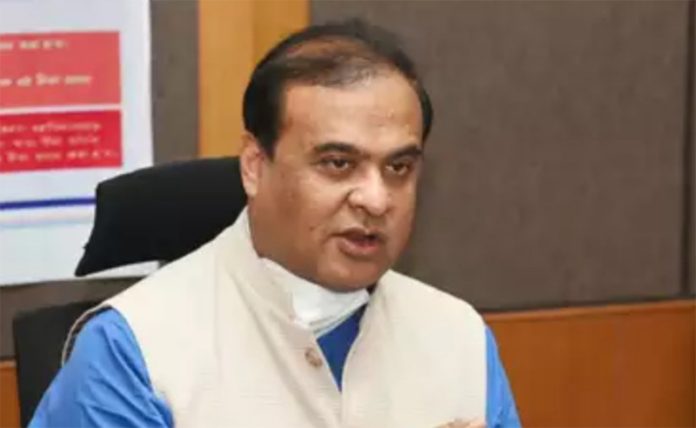GUWAHATI, Mar 12 : Assam Chief Minister Himanta Biswa Sarma on Tuesday said that he will be the first to resign even if one person, who has not applied for the National Register of Citizens (NRC) in the state, gets citizenship.
His comment comes after protests erupted across Assam with opposition parties flaying the BJP government at the Centre for implementing the contentious Citizenship (Amendment) Act, 2019 (CAA) on Monday, paving the way for granting citizenship to undocumented non-Muslim migrants from Pakistan, Bangladesh and Afghanistan.
‘I am a son of Assam and if a single person who has not applied for NRC in the state gets citizenship, I will be the first to resign,” the chief minister said on the sidelines of a programme at Sivasagar.
The protesters are claiming that lakhs of people will enter the state after the implementation of the CAA.
‘If this happens, I will be the first to protest,” he said.
The chief minister asserted that those who have come to India after 2014 will not get citizenship, and the number of such applicants will be “negligible”.
‘People do not want to identify themselves as foreigners. There may be 50,000-60,000 applications from three districts of Barak Valley while it will be negligible in districts of Brahmaputra Valley,” he said.
There is nothing new about the CAA as it was enacted earlier, the chief minister said, adding that ‘now the time has come for application on the portal’.
‘The data on the portal will speak now, and it will become clear whether the claims of those opposing the Act stand factually correct or not,” Sarma said.
People of Assam will know in a month whether lakhs of people or a few thousand are applying for citizenship in the state, he said.
The chief minister said he respects both the protesters and the supporters of the Citizenship Amendment Act but ‘enough has been said on CAA and now it is time to prove the claims’.
“It is time for those who are in politics to prove their claims just like Sita had to undergo ‘agni pariksha’ to prove her purity,” Sarma said.
He said it would also be clear who were responsible for the death of five people during the violent protests in 2019.
“Protests should not be held now as the law has already been enacted but if anybody has any grievance, they should go to courts,” he said.
With the CAA rules being issued, the central government will now start granting Indian nationality to persecuted non-Muslim migrants from Bangladesh, Pakistan and Afghanistan, who came to India till December 31, 2014. These include Hindus, Sikhs, Jains, Buddhists, Parsis and Christians.
The law could not come into effect as rules had not been notified till now.
Several student and non-political indigenous organisations along with opposition political parties in Assam were opposing the CAA, claiming that it violates the provision of the 1985 Assam Accord.
The accord called for “detection and deportation” of all people who entered the state from Bangladesh post March 24, 1971.
The Supreme Court-monitored National Register Citizens published on August 31 2019, which excluded 19 lakh of the 3.4 crore applicants, was a fallout of the Assam Accord.
The NRC and the CAA are not linked in the rest of the country but in Assam, the only state engaged in the NRC updating exercise.
A sizable population of Bengali Hindus were left out due to lack of proper legacy data documents.
The NRC authorities had claimed that these people did not have documents to prove that they had entered the state before March 24, 1971. (PTI)


